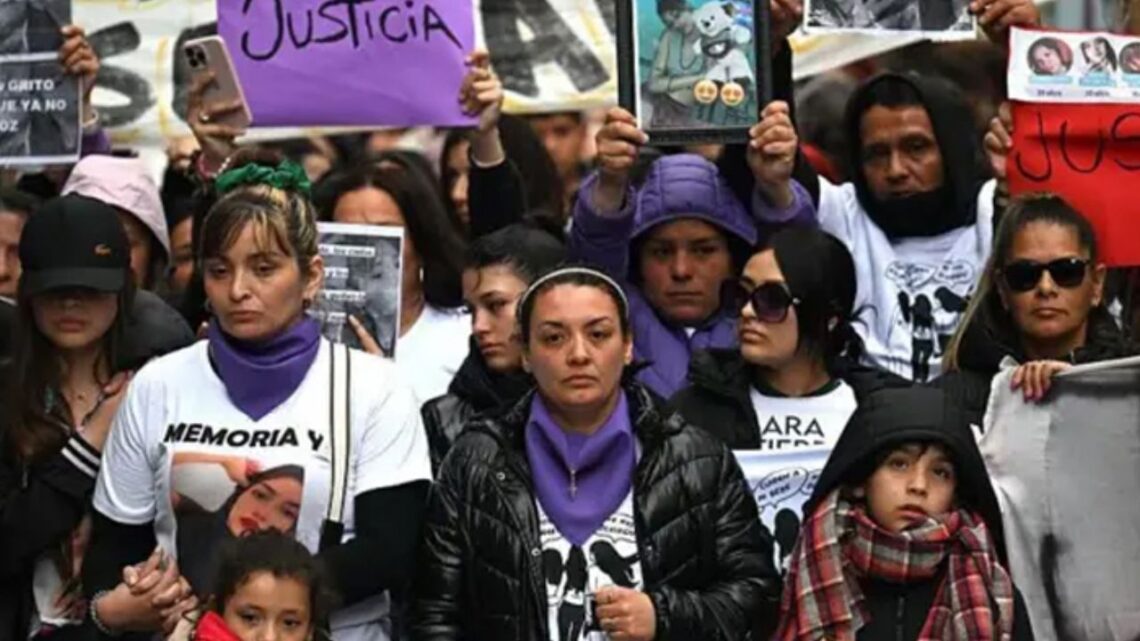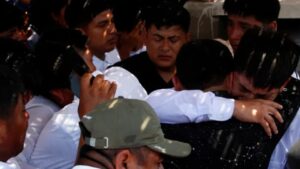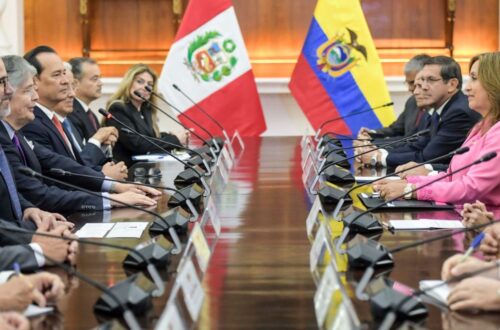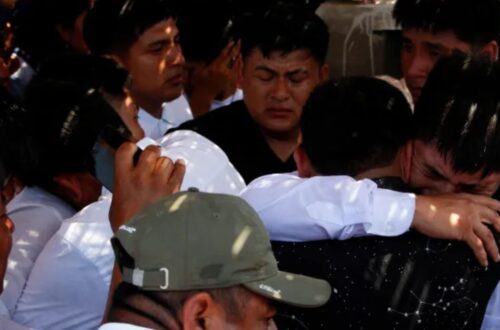A Peruvian judge has ordered the preventive custody of the alleged mastermind behind Argentina’s triple femicide, a crime that has deeply shaken Latin America.
The suspect, 20-year-old Tony Janzen Valverde Victoriano, nicknamed “Little J”, was declared a flight risk and will remain in custody for nine months while Argentina’s extradition request is processed.
Valverde is accused of orchestrating the brutal murders of two young women and a 15-year-old girl, whose bodies were found buried in a yard near Buenos Aires.
The killings, reportedly livestreamed to a private social media group, have been described as one of Argentina’s most horrific femicides in recent years.
Key Facts About The Case
| Detail | Information |
|---|---|
| Suspect Name | Tony Janzen Valverde Victoriano (alias “Little J”) |
| Age | 20 years |
| Nationality | Peruvian |
| Custody Ordered By | Judge Cristhian Chumpitaz |
| Detention Duration | 9 months |
| Location of Detention | Cañete Prison, Peru |
| Victims | Morena Verdi (20), Brenda del Castillo (20), and Lara Gutiérrez (15) |
| Date Missing | September 19, 2025 |
| Bodies Found | September 24, 2025 |
| Crime Location | Florencio Varela, Buenos Aires |
| Cause of Death | Torture and murder, livestreamed on social media |
| Motive | Alleged punishment for stolen drugs |
| Arrests So Far | 9 people including accomplices |
| Main Accomplice | Matías Agustín Ozorio (28), deported to Argentina |
The Crime: From Disappearance To Discovery
On September 19, 2025, the victims — Brenda del Castillo, Morena Verdi, and Lara Gutiérrez — vanished after entering a van, believing they were going to a party. Reports suggest they were lured by members of a drug gang that Valverde allegedly led.
The women were taken to a house in Florencio Varela, where they were tortured and murdered while the gruesome act was broadcast live in a private group of around 45 viewers. Their bodies were later buried under concrete and debris in the yard of the same property.
Authorities believe this public display of violence was a “punishment” for allegedly stealing narcotics from Valverde’s gang, meant to intimidate others within the criminal network.
Arrest And Extradition Process
Valverde was captured by Peruvian police in the coastal district of Pucusana, Lima, after a coordinated manhunt by Peru and Argentina’s law enforcement agencies. He was found hiding inside a truck, allegedly planning to flee.
His alleged accomplice, Matías Ozorio, had been arrested earlier and deported to Argentina, where he faces aggravated murder charges.
During his court appearance, Valverde denied involvement, claiming he worked in agriculture and street vending rather than criminal activity.
The Peruvian judge ordered him to remain in detention for nine months, citing risks of escape and potential interference in ongoing investigations.
Meanwhile, Argentina’s extradition request is being formally processed through diplomatic channels.
Argentina’s Reaction: Protests And Demands For Justice
The brutality of the killings sparked nationwide outrage in Argentina, where thousands of citizens joined marches demanding justice for the victims.
The tragedy has reignited discussions about femicide, drug-related violence, and the role of organized crime in exploiting vulnerable young women.
Human rights and women’s organizations have called on authorities to take tougher measures against gang-linked violence and to provide stronger protection for women living in dangerous urban areas.
The case has also become a major political topic, pressuring governments in both Argentina and Peru to strengthen cooperation on cross-border crime.
Drug Gang Connections
Authorities believe that “Little J” led a drug network operating in Buenos Aires’s Zavaleta neighborhood. The gang allegedly trafficked narcotics and used extreme violence to enforce control.
Investigations suggest that the victims’ deaths were an act of retribution after the gang accused them of stealing several kilograms of drugs.
Valverde’s background adds to the intrigue — his father was reportedly involved in a Peruvian criminal group before being killed in 2018, which may have influenced Tony’s early entry into the underworld.
The livestreamed nature of the crime shocked even seasoned investigators, highlighting the growing connection between social media, organized crime, and gender-based violence.
Ongoing Investigation And Future Steps
Currently, nine suspects have been arrested, with several others under investigation for aiding the gang or covering up the crime. Argentine prosecutors are working closely with Interpol and Peruvian authorities to gather digital evidence from social media platforms and communication apps.
The case has become a key example of international collaboration against femicide and transnational drug crime in South America.
The imprisonment of Tony “Little J” Valverde in Peru marks a crucial step toward justice in one of Argentina’s most disturbing criminal cases.
The triple femicide, involving young victims, organized crime, and digital brutality, exposes deep social issues — from poverty and drug exploitation to systemic gender violence.
As Peru proceeds with the extradition process, the victims’ families and the global community continue to demand accountability.
This case serves as a stark reminder of the urgent need to protect women, combat organized crime, and ensure that such atrocities never happen again.









